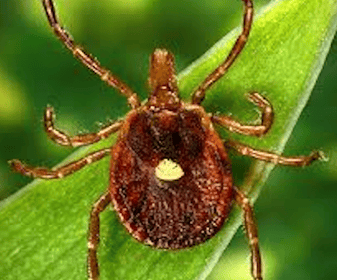Understanding the Lone Star Tick and Alpha-Gal Syndrome on Nantucket
Nantucket’s serene beaches and lush landscapes make it a treasured destination for residents and visitors alike. However, the island’s natural beauty also creates a perfect habitat for the Lone Star tick, an increasingly prevalent arachnid linked to a surprising and often life-altering condition: Alpha-gal syndrome (AGS).
12/11/20242 min read


What Is Alpha-Gal Syndrome?
Alpha-gal syndrome is a type of food allergy to red meat and other mammalian products, triggered by a carbohydrate molecule called alpha-gal. The connection between AGS and the Lone Star tick comes from the tick’s saliva. When a Lone Star tick bites a person, it transfers alpha-gal into their bloodstream, potentially sensitizing the immune system and leading to allergic reactions upon consumption of red meat or related products. These reactions can range from mild hives and stomach pain to severe anaphylaxis.
The syndrome’s onset can be perplexing, as symptoms often appear hours after eating red meat. Diagnosing AGS requires a detailed medical history and specific blood tests. While the condition can be managed by avoiding triggering foods, preventing tick bites is the best defense.
The Lone Star Tick’s Spread on Nantucket
Originally found in the southeastern United States, the Lone Star tick’s range has expanded significantly, including into New England and the island of Nantucket. This expansion is fueled by climate change, altered land use, and wildlife migration, creating challenges for public health and property management on the island.
Protecting Yourself and Your Property
Given the risks associated with Lone Star ticks, taking proactive measures to protect yourself and your property is crucial. Here are some tips:
1. Personal Protection:
- Wear long sleeves and pants when spending time in grassy or wooded areas.
- Call local pest control company to set up a treatment plan for your home.
- Perform thorough tick checks after outdoor activities and shower promptly.
2. Yard Maintenance:
- Keep your lawn mowed and remove leaf litter or debris where ticks can hide.
- Create a barrier of gravel or wood chips between wooded areas and your yard to deter tick migration.
3. Natural Pest Control for Your Property:
- Consider using all-natural pest control treatments to reduce tick populations. Set up a plan with local pest control specialists.
- Encourage tick-eating wildlife, such as certain bird species, by providing birdhouses or feeders away from high-traffic areas in your yard.
4. Community Awareness:
- Work with local organizations on Nantucket to support tick surveillance and control efforts.
- Educate your neighbors about the risks of Lone Star ticks and the importance of collective action to minimize exposure.
Embracing Natural Solutions for a Safer Nantucket
While the Lone Star tick and Alpha-gal syndrome pose significant challenges, embracing all-natural pest control methods can protect your family and property without compromising the island’s ecosystem. By combining personal precautions with environmentally friendly yard treatments, you can enjoy Nantucket’s outdoor spaces safely and responsibly.
If you’re concerned about ticks on your property, consider consulting a professional pest control service that specializes in natural and sustainable solutions. Together, we can ensure that Nantucket remains a haven of beauty and safety for everyone.
